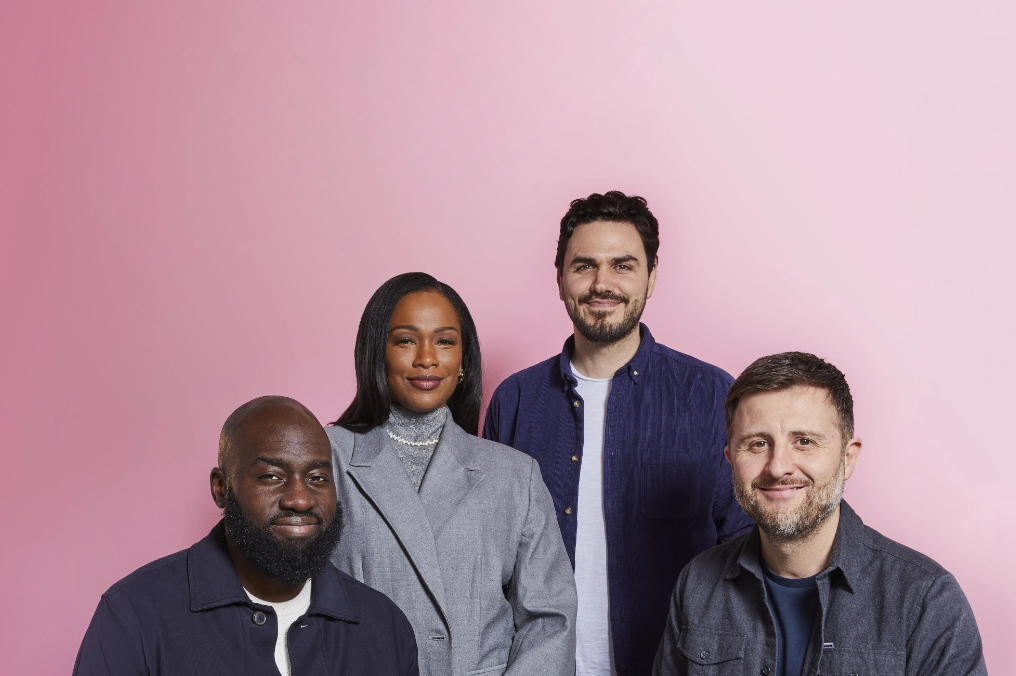The State of Startup:
Looking at trends from the 2023 AXA Startup Angel winners
Okay, maybe it’s ambitious to call it a “trend” given we only have six winners but there were some common threads between all of our Startup Angel award winners that we wanted to dive a little deeper in to. Let’s take a look at the 2023 businesses that wowed our judging team:
Winners
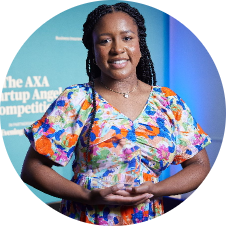
Olivia Hylton
Founder, Sistren
Sistren is a community-building app that creates more equitable outcomes for black women by fostering connections, promoting knowledge exchange, and providing a supportive network.
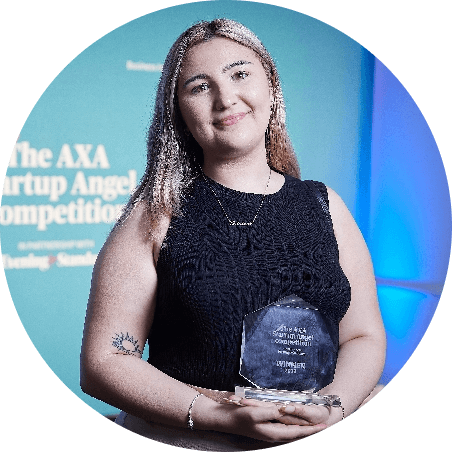
Hanan Tantush
Founder, Intotum
Inotum is a clothing brand that provides stylish yet functional fashion for those living with a physical disability. They work alongside the disabled community and aim to offer an abundance of practical fashion choices.
Runners up

Aira Gucilatar
Founder, Blute
Blute is a web app that aims to address inadequate support for healthcare students during clinical placements. It aims to alleviate the UK’s healthcare workforce crisis, thereby improving patient care via a platform for healthcare educators to track student progress and improve learning.

Paramveer Bhachu & Joanna Power
Founders, Lylo Products
Lylo Products has created a device that collects shower water in a mat, then filters the water and reuses it in a small portable washing machine.
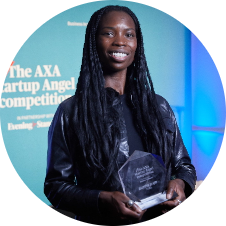
Fali Omodudu
Founder, In the Air
In the Air has developed a recyclable pollution-absorbing ceramic material – that can be used as plant pots, outdoor planters, or tiles – which filters the air around it to help reduce air toxicity.
People’s Choice Award
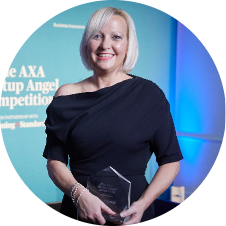
Caroline Hill
Founder, Donna Forte
Donna Forte which means ‘strong women’ in Italian – is a clothing brand which provides creative, comfortable, adaptive, high-quality post-surgery underwear for breast cancer patients.
While each business is in a different part of its journey, there’s some commonalities between them that other startup founders could learn from. We’ll explore a few of the emerging themes we found from the top startup businesses of 2023.
Two of our businesses have a huge focus on sustainability and the environment: Lylo Products and In the Air.
Paramveer of Lylo Products says
“I think as entrepreneurs and as a startup
business it’s very important that we encourage being environmentally friendly not only with the
products we make but as a company ourselves. We don't want to leave kind of a negative impact as we
run ourselves as a company. And then hopefully that, you know, inspires a lot of other companies to
kind of get up and do something about it too.”
Small businesses can play a key role in reducing carbon emissions in the UK, but this task seems so big that it's often difficult to navigate.
There are over 6 million small businesses in the UK that make up 99% of the country's industry and those small businesses employ 60% of the UK workforce all while generation £2.2 trillion for the economy. Needless to say, small businesses are a force to be reckoned with, so it's vital that they be part of the solution.
Joanna Power, co-founder of Lylo products says
“I think a smaller company,
because they're working from the ground up knowing that they're going to be sustainable like us, are
able to work that in to their model a lot easier than it would take to retrofit that to a regular an
existing company.” However, businesses can find sustainability hard to pin down.
Fali Omodudu of In the Air told us
“Since about 2018, a lot of companies have
been trying to implement some sustainability in their business plans and there is a lot of talk but no
one actually knew what it meant and a lot of what happens is just greenwashing unfortunately.” From
day one, she decided that the whole idea of leaving a place as you found it or better would be a core
tenet of her business.
If you’re just starting out and want to make sure your business is as sustainability focused as our winners, here’s some advice for keeping sustainability front of mind:
Joanna: Build it in from the start because sustainability is harder to fit in later on. You should check from cradle to grave what impact is this product having through extraction of the materials, manufacture, production – every part of the process. It's getting to a point where it can't just be an add-on. Everyone needs to consider it.
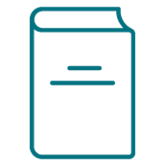
Fali: Read The Blue Economy 3.0: The Marriage of Science, Innovation, and Entrepreneurship Creates a New Business Model That Transforms Society by Gunter Pauli. It really transformed the way I thought about design and how I approach creation. It taught me to consider the physical aspects of nature when designing rather than relying solely on chemistry. It taught me how to structure my business with circular principles at its core. When circularity is the foundation of your products, creating a sustainable business becomes remarkably natural.

Ideas: For more ideas on sustainability for small businesses, read our guide to net zero: What Do the Net Zero Goals Mean for Small Businesses? (axa.co.uk).
Our winners this year really fall into two buckets: STEM and the arts. Over the years, there’s been some discussion on changing the acronym to STEAM to include the arts instead because they can play such an important role in science and tech spaces. In fact, the British Science Association and the British Academy recently released a joint statement urging that education spaces focus on merging the two rather than pitting them against each other.
The 2022 Future Forum Report on Science and Creativity reports that 81% of young people believe that creativity will play an important role in solving the societal challenges we face in the next 10 years. Most young people also believe that diverse teams that involve creative partners encourage innovation and lead to greater efficiency in problem solving.
Fali, founder of In the Air, mirrors this sentiment:
“The one thing which I thought was really interesting is everyone was doing the research, but no one's putting their projects into action. It’s interesting that we have all this information but then it doesn't seem to be applied to anything in the real world. And I think that's where the arts come in. With everything that's going on in the world and we're going to need the collaboration of STEM and arts so much more. It's something which I've really valued and it saddens me a little bit that we don't appreciate arts more.
Fali comes from an arts background but has been collaborating heavily with scientists and laboratories to develop her recyclable ceramics which reduce pollution, creating a solution which wouldn’t be possible without both STEM and the arts working in tandem.
A further two winners come from an arts background – specifically fashion – and are applying their skillset to the health sector. Mental health and physical health often go hand in hand with one affecting the other which was the thought behind Caroline Hill’s Donna Forte brand. After a personal battle with breast cancer in 2021, she found the search for post-surgery garments “an added strain and pressure and it felt like another medical process at a time when all is difficult and medical.”
Giving women agency again after a difficult medical time can help them feel more confident and more ready to begin the healing process. Hanan Tantush, the founder of Intotum, has a similar ethos behind her business.
In her effort to make garments with hidden functionalities that work for a variety of disabilities, Hanan is problem-solving by going back to the drawing board entirely. “For wheelchair users, you actually have to start from scratch because for a seated user everything fits differently. Clothing is actually only made to be stood in so I really had to go back to the start and create my own like custom patterns” says Hanan.
With all three of these businesses, having a background in the arts helped them to find a creative solution to the problems they identified in their community. Without their specific skillsets, there might still be a gap in the market.
If you’re looking to add more diverse ways of thinking to your business, find out why it matters and how you can achieve it:

Fali: Having a diverse people who are diverse in what their skill sets and their knowledge is super important because that's where the newness is going to come.

Caroline: Diversity in small business is vital for for innovative thinking and the development of new ideas.

Hanan: Find out how to build a diverse team for your business: Diversity in Small Business (axa.co.uk).
Living in the digital age means that there’s often a way to use technology to make your life easier. This can be done with a wide variety of tech such as automations that take menial tasks off your plate or a platform that helps you develop no-code apps.
In fact, a 2020 survey of business leaders by McKinsey & Co found that 66% were piloting or implementing solutions to automate at least one business process. While we have a useful article covering the automations that you can use, we also found that the latter was a tool utilized by two of our 2023 Startup Angel winners. Let’s explore why they both created an app as part of a solution to the problems they’re trying to solve:
Aira, founder of Blute:
Much of the existing processes in place today among my target customers are centred around completion of manual paperwork. I find that to be rather outdated and now would be the perfect time to harness technology to introduce efficiencies to old ways of working.
Olivia, founder of Sistren:
With the advent of technology and social media, so much more of life is done online and I wanted to leverage that to provide a solution to a problem. From research, I found that people were trying to use various different apps as a way to get information, to make friends, to find community. And so, it felt like a natural step to create an app to solve this problem.
Looking to use technology to make your life easier as a small business owner? Check out these top tips:
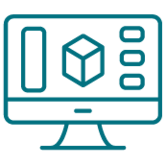
Glide: Both Aira and Olivia are using Glide for their no-code app building:
- Aira chose it because “it seemed the most user friendly and was popular among other tech entrepreneurs”
- Olivia has her own guide to using it on Linkedin: Lessons learned as a no-code solopreneur | LinkedIn

Make life easier: Find other ways to make life easier as a small business owner with more automation and tech: Automation for Small Businesses (axa.co.uk)
One important commonality from all six of our winners is that none of them have a business background but they’re all now in charge of a business. Hanan, told us that “because my background is fashion anything I know about business is basically what I learned at GCSE. Everything I've done has kind of been based on instinct and learning on the job.”
If you’re in the same place as Hanan, it can feel like there’s a lot of catching up to do but take courage from the fact that all of our winners are learning business skills on the job and putting transferrable skills from previous experiences into their work.
Check out what other winners have to say about how coming from another background has helped them in their startup journey:
Aira:
Even though I'm not treating patients, I've taken a lot of those learnings and using it in my day-to-day now. Being at the frontline, you gain valuable soft skills and valuable experiences. Communication in particular was fundamental and core to effective patient care. It has proven to be tremendously important in my line of work, and especially as an aspiring entrepreneur. I’m very thankful for that training.
Fali:
One of the things which I find is that people get boxed in by their career – you’re a doctor, you’re an artist and that’s where your skills lie – but actually everyone has a lot of transferable skills. On the business side I used my creativity to come up with a strategic map of the project, and to decide come up with how it would be circular. I found that creative thinking and problem solving was super, super important and it was transferred to the process of making business plans.
When looking to expand her team, Olivia, the founder of Sistren, talks about looking for people with the right mentality rather than a specific set of skills: “While it's nice to have experts in place, it's also nice to have people that are just willing to get stuck in, be a bit scrappy and try everything”.
Feeling a bit out of your element? Take a look at this advice:

Starting a business: If you’re starting a business and feel like you don’t know it all yet that’s okay – just be ready to learn. In our 2023 Startup Report, being ready to learn was one of the top pieces of advice veteran entrepreneurs would give to someone who is just starting out.

Recommendations: For recommendations on podcasts, books and websites that other entrepreneurs use to excel in business, read more: Entrepreneurs Recommend: Books, Apps and Tech (axa.co.uk)

Guides: For practical guides to all things business, check out our Business Guardian Angel blog: Business Guardian Angel | Business Insurance Advice | AXA UK
In our 2023 study on UK startups, we found that of 500 small business owners and sole traders, 59% supported themselves with personal savings, 10% more than those using the same method last year - so the stakes remain high. This was reinforced with additional help from credit cards (25%), bank loans (25%) and donations from family (20%).
But among our six winners we found that quite a few were funding themselves in a different way – through a variety of competitions and incubators.
Joanna suggests looking for competitions that offer different types of support – whether it’s funding, mentorship, or a network.
When it comes to finding the right kinds of funding, it’s important to be selective about your time as applications can be all consuming. Hanan recounts finding a business incubator programme which had an application that spanned over 12 pages.
If you’re lucky, sometimes organisations will also approach you, so getting the word out about what you’re working on – no matter what stage you’re at – can help. For Fali, it worked out that the Impact Hub approached her to set her up with business support just after she finished her masters degree.
If you’re looking for businesses funding, here’s a few of the programmes besides AXA Startup Angel that our 2023 winners mentioned:
- Young Innovators
- Innovate UK
- Red Bull Basement
- The Greenhouse
- Women in Innovation Programme with Innovate UK
- Impact Hub
- The King's20 Accelerator from the Entrepreneurship Institute
- Barclays Black Founder Accelerator
- Register for updates about AXA Startup Angel 2024
And if you’re looking for some more guidance on where to find funding, check out these resources from our Business Guardian Angel blog:
The number one piece of advice that seasoned business owners would give to those just starting out is to do your research. Knowing your field and your customers will help you to set off on the right foot.
When speaking with our six Startup Angel winners, it was quickly apparent that every one of these business founders has done copious amounts of research and used a wide variety of methods.
Practically every single one of them started out with industry research to better understand the problem they were trying to solve – finding facts and figures that supported the need for their product or service.
But as they get closer to launch, their research needs have varied a bit more. The teams from Lylo Products and In the Air needed more technical research and testing whereas user research was more important for the others.
Research and feedback are some of the best was to refine your business and ensure it is meeting the needs of your intended market.
“Over time, through conversations with users and through looking at competitors, I’ve improved my business. And so I think today we're in a much better place than we were last year, but there's always room for growth. You can never stop learning” says Olivia.
Let’s take a look at all the different research methods that were mentioned in our chats:

Industry Reports, competitor research, expert interviews: These methods are often some of the first steps that a business takes when it comes to research. Every single 2023 Startup Angel winner discussed using at least one of these methods if not all three.
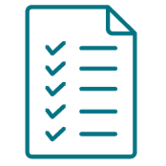
User interaction studies: If you’re improving on an existing product, it can be useful to see how current users interact with it, what pain points they currently have and what features they’re looking to be added. Hanan discussed observing how carers and disabled people interacted with clothing when trying to decide what features to add to her clothing line.

Diaries: For Lylo products, having people record “shower diaries” detailing all the products they were using when they showered was an essential part of ensuring their system could filter out the different components found in the various shampoos, conditioners, and body washes that were used. Diaries can be used to track things like steps taken to complete a process, how many times an action is taken per day, or thoughts and feelings about a product/service over time.

Prototyping and minimum viable products (MVP): Getting the absolute basic working version of your product out there enables a different type of research to happen. Once it actually exists, it’s easier to get feedback and start testing it out so that you can refine it further. Olivia discussed how getting an MVP out there early on allowed her to start building up a user base that helped shape the direction of her app.

Pilot Study: If you want more formal feedback on your MVP, you could try a pilot study like Aira did for Blute. Getting a dedicated group of people to use her platform for a few weeks meant she could create a case study highlighting what worked well and to prove that the platform successfully did what she wanted it to do.
If you’re looking to start on some research, check out these resources on research and development for your business:
Starting your business
According to our 2023 Startup Report, the average small business takes 2.76 years to get off the ground - from the moment the idea springs to mind to launch day. Though 24% will take the plunge in under a year from their lightbulb moment, 51% wish they had struck while the iron was hot and launched their business sooner than they did.
If you’ve got an idea and want to make it a reality – don’t wait. Learn more about the AXA Startup Angel winners and sign up for notifications on when the next AXA Startup Angel competition launches here: www.axa.co.uk/startup-angel.
Work hard, insure easy
Running a business is hard work. That’s why we’re doing all we can to make your insurance a bit easier. From helping you tailor your policy to your unique business needs, to taking the guesswork out of finding business insurance, find out what we’re doing to help small businesses.
All links are checked and valid at time of publishing, 24 October 2023.
